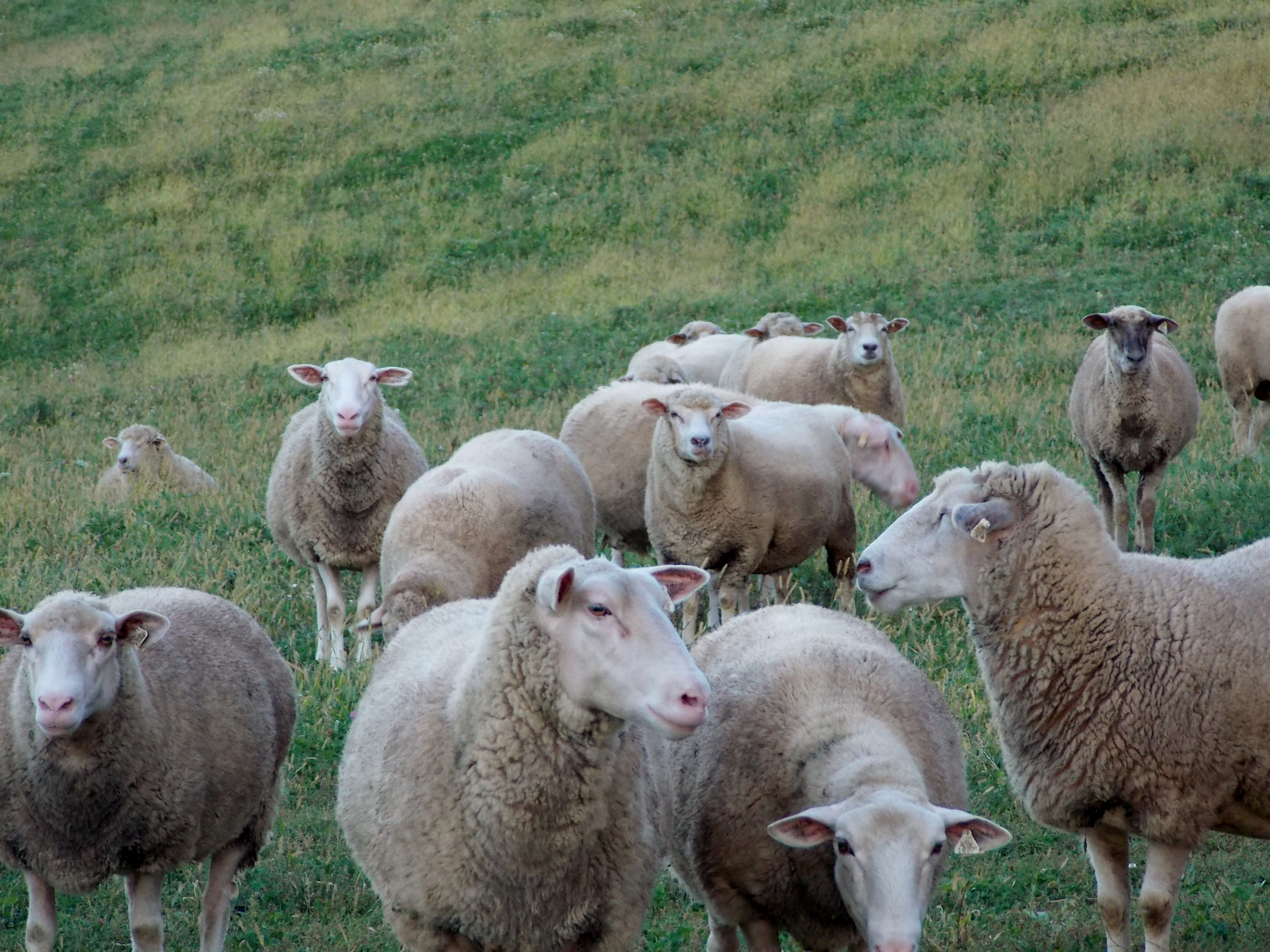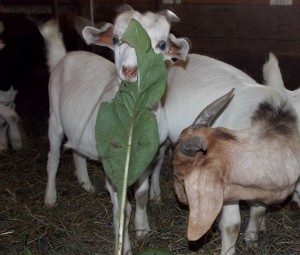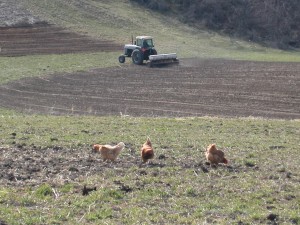 A few years ago, when we were still living in Illinois, the planting season started as soon as the snow cover was gone, or so it seemed, anyway. The land was flat, it warmed up quickly and dried fast. The planting date seemed to get earlier and earlier each year. There was a race to be the first farmer in the fields again. Driving through the countryside you'd twist your head, turning fast and craning your neck to see who was working their ground so early in the season. I call it seasonal whiplash.
A few years ago, when we were still living in Illinois, the planting season started as soon as the snow cover was gone, or so it seemed, anyway. The land was flat, it warmed up quickly and dried fast. The planting date seemed to get earlier and earlier each year. There was a race to be the first farmer in the fields again. Driving through the countryside you'd twist your head, turning fast and craning your neck to see who was working their ground so early in the season. I call it seasonal whiplash.
Keith slowed our truck to a crawl, then stopped just in front of the sheriff's car. It was blocking the road and the glowing red flares marked the site where a pickup truck had skidded into the ditch. The hood of the truck was peering up from the side of the embankment as the tow truck backed into place. “That looks like Buck White's truck in the ditch.” Keith strained as he looked for Buck.
“It is Buck's truck. I hope he's okay,” I couldn't see anyone inside the truck. “It doesn't look damaged, I don't think it rolled.” I sat back and shut off the radio as the sheriff's deputy walked over to us. Keith rolled down the window.
“Afternoon. It'll just be a few minutes until we open the road again.”
I leaned over the center console to see the deputy's face.“Was anyone hurt?”
With his hands on the door frame he leaned into the truck, “No, the drivers fine, he was looking over his shoulder when his right front tire caught the soft gravel and it pulled him into the ditch. The truck can't get enough traction in the soft ground, he just needs a tow out.” He waved to the car pulling up behind us and walked off. The audible rumbling of an engine was getting louder in the field across from us. “There's Buck's trouble,” I pointed to the farm field where a tractor was coming into view. It was moving slowly, pulling a corn planter. The doubled up rear tires were flinging mud as it dug into the soft ground. “Buck caught a case of seasonal whiplash. He jerked his head around to see who was planting this early.”
Keith laughed, “You're probably right. It seems much too early and too wet to work a field, let alone plant it. Some guys would just as well mud in their crop as wait for drier weather to plant it.” He reached for the door handle, “I'll see if Buck needs a hand.”
Buck and the deputy were standing on the shoulder of the road watching his truck roll back to the pavement. When it came to rest they all circled it checking its road worthiness. Keith patted Buck's back as they shook hands. He threw back his head, laughing. When he got back into the truck he turned to face me, “You called it. It's a clear case of seasonal whiplash”. Apparently, as Buck was coming around the corner, he saw that tractor in the field. He couldn't believe it, turning to get a second look, he swerved and caught the tire on the gravel's edge. Next thing he knew, his truck was in the ditch.
“Who's planting that field?” I asked. The ground belonged to Rusty Little's family.
“The Little's rented it to a guy from Boone County. That's a pretty good distance to have to move equipment. He's incredibly anxious if he's planting now. The ground's too cold.” Keith turned onto the road, heading for home.
"A farm is a hunk of land on which, if you get up early enough mornings and work late enough nights, you'll make a fortune - if you strike oil on it." -Fibber McGee
The warm spring weather has every machine shed door wide open. There is equipment parked in every farm-yard, each piece being examined. Grease guns lubricate fittings, loose bolts tightened, hydraulic hoses connected with fluids added as necessary. Anxious farmers can't wait to get into the fields again. Planting time causes every eye to turn toward the weather report. The old timers talked of the Three Iron Men and Ember days. The younger generation watches radar and consults their smart phone. Now and again a piece of equipment moves down the road under the scrutiny of every farm it passes by. If a planter or grain drill moves along the road, while the fields are still sodden, tongues wag. No one wants to be the first in the field. The scrutiny would be too great. They also don't want to risk crop failure. However, being the last to work your fields invites criticism of your work ethic. Good weather is as critical as the planting date. Planting a few days late makes a difference. Each day, past the ideal planting date, the yield is depleted. For us, planting weather doesn't make or break our crop, we're grass farmers. Although, wet weather will certainly affect the hay crop.
So, with planting season in full swing, let's be careful. Turn your head slowly to get a better glimpse of the farmers hard at work planting their fields. You don't want to suffer from seasonal whiplash.
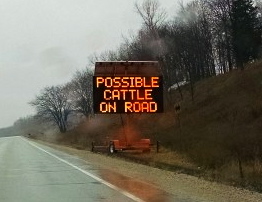
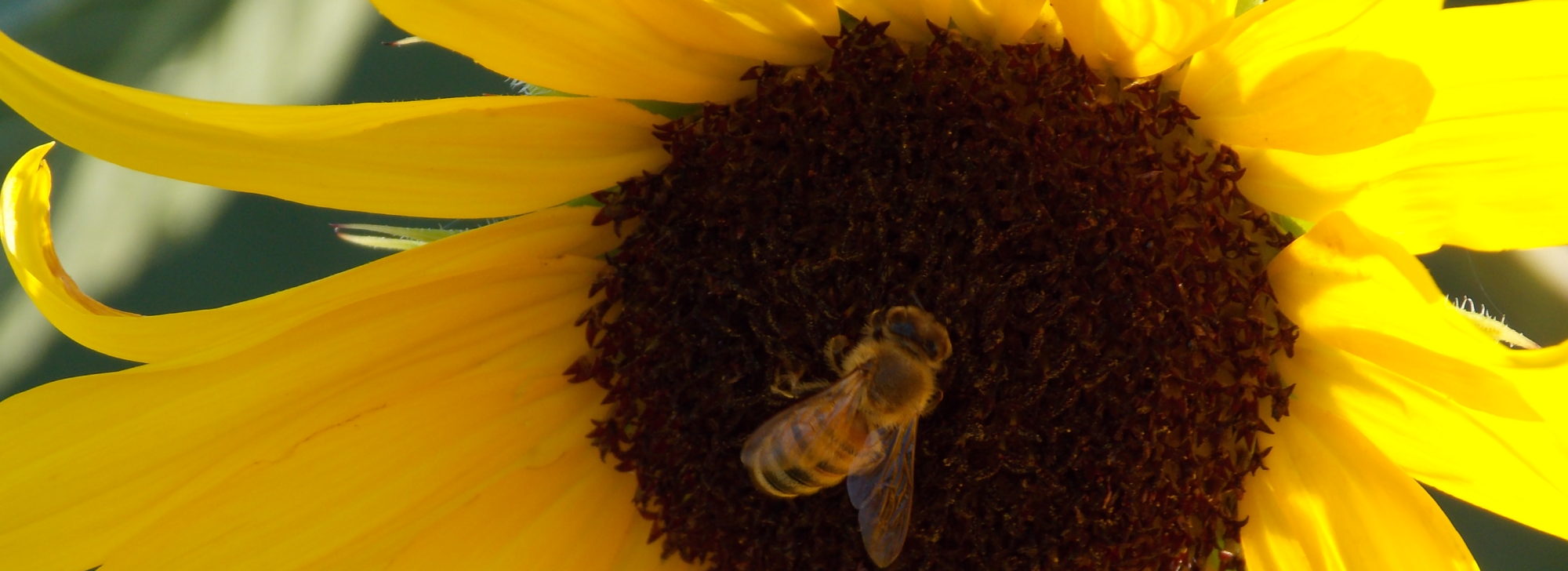
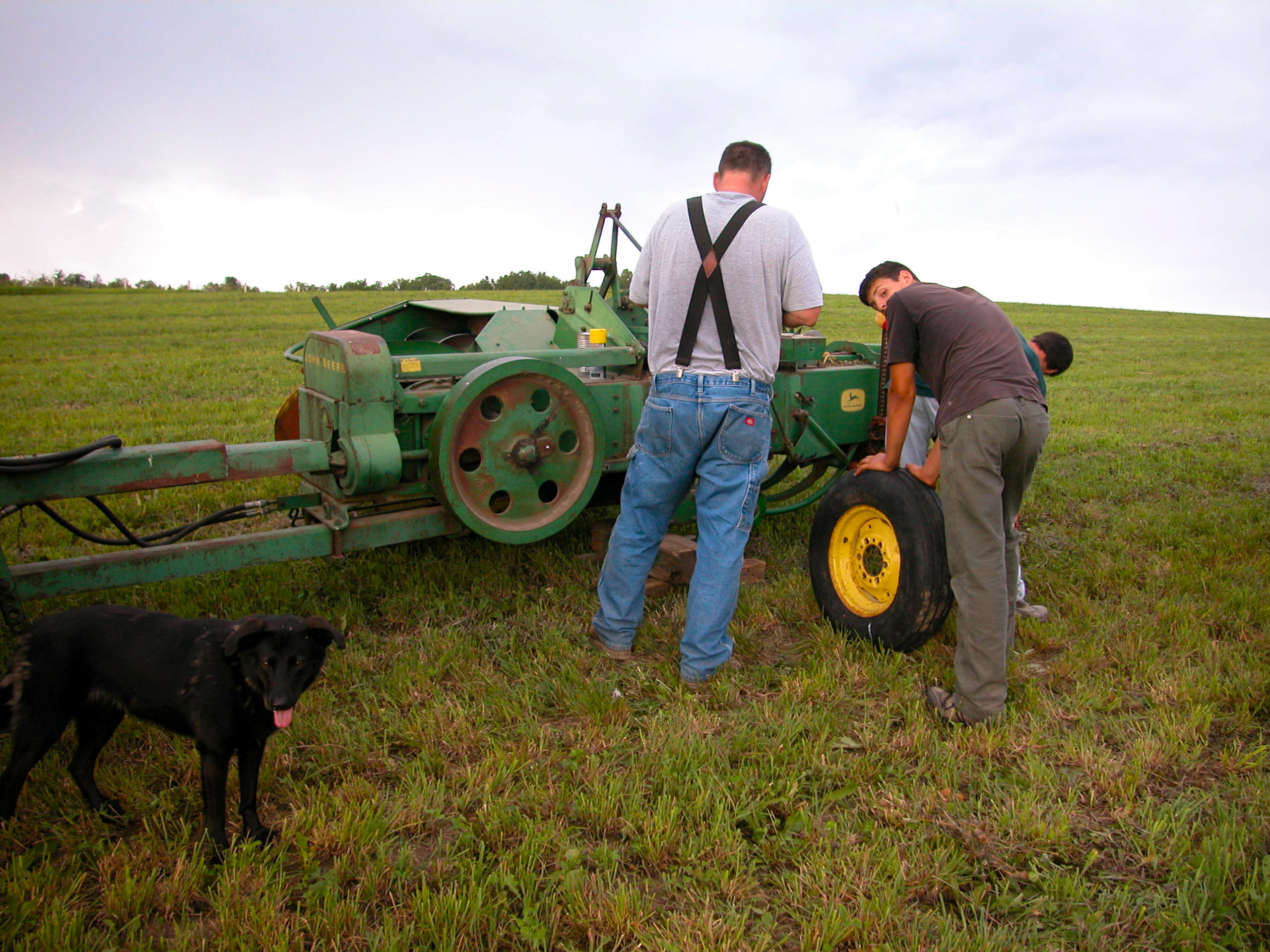
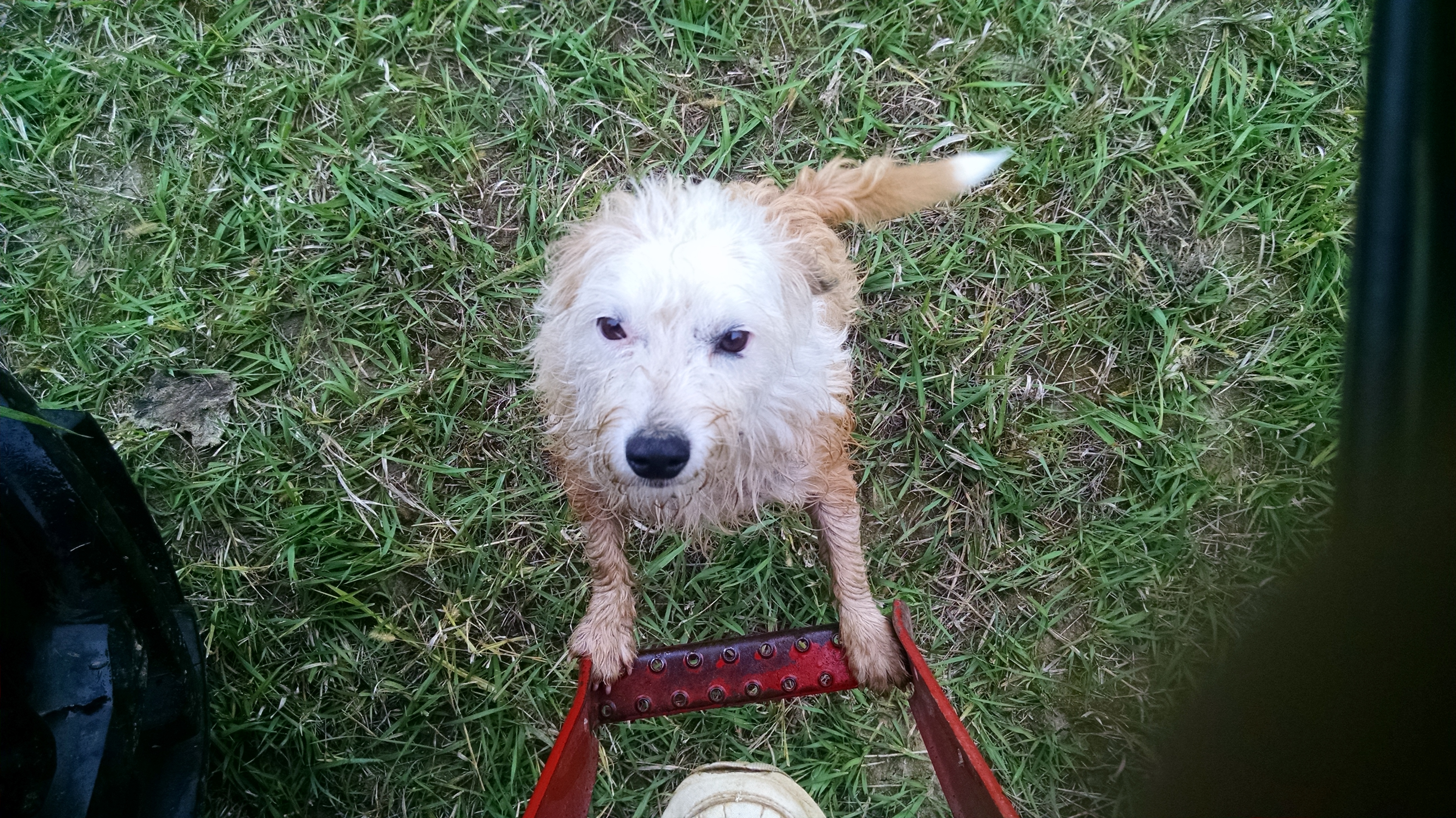
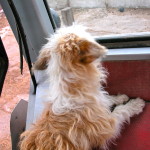
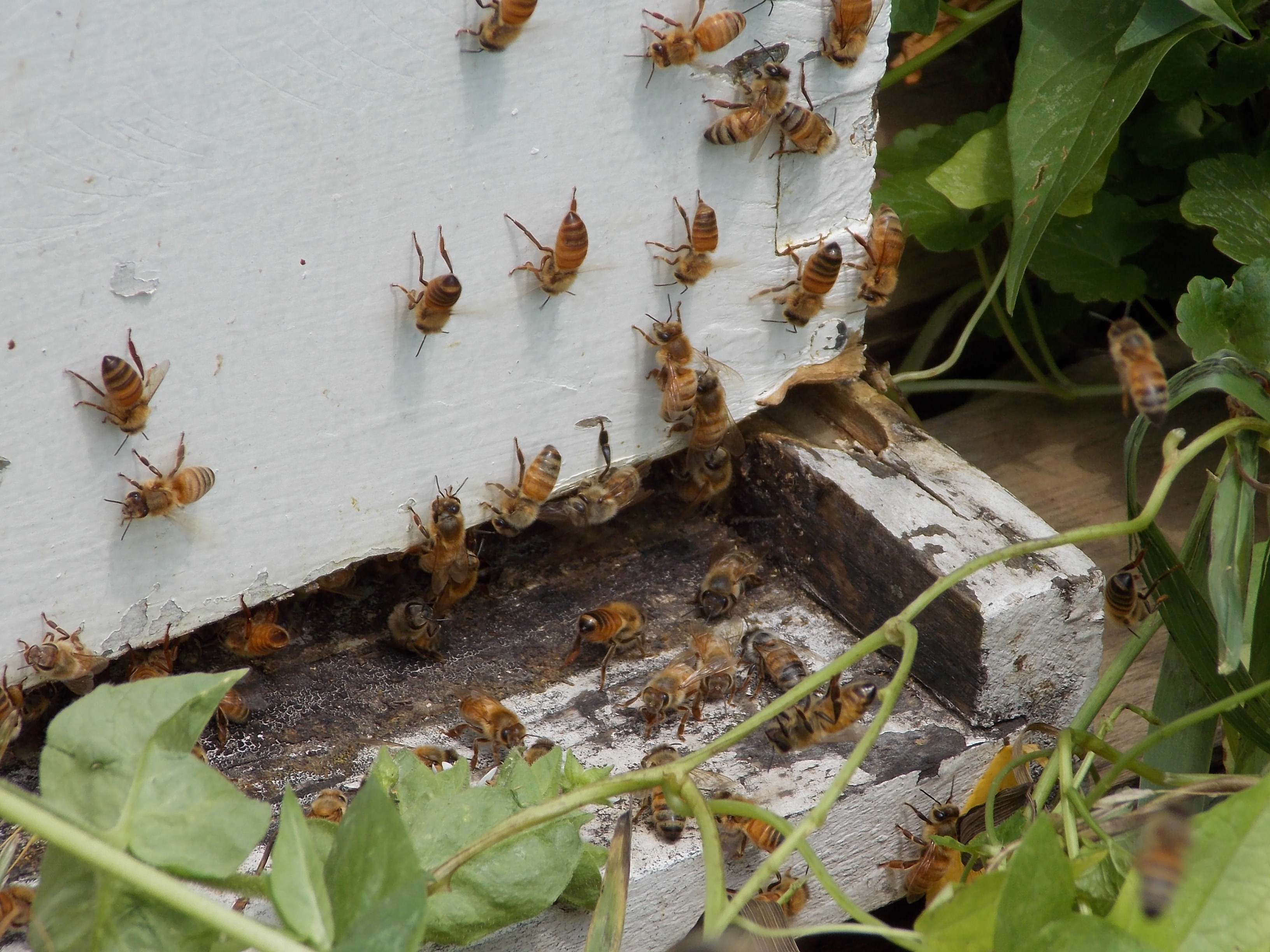
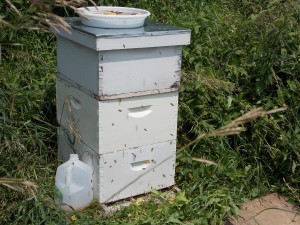
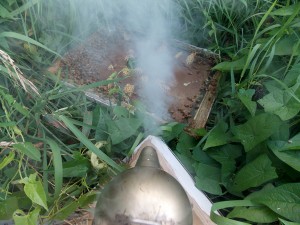
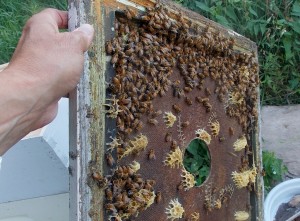
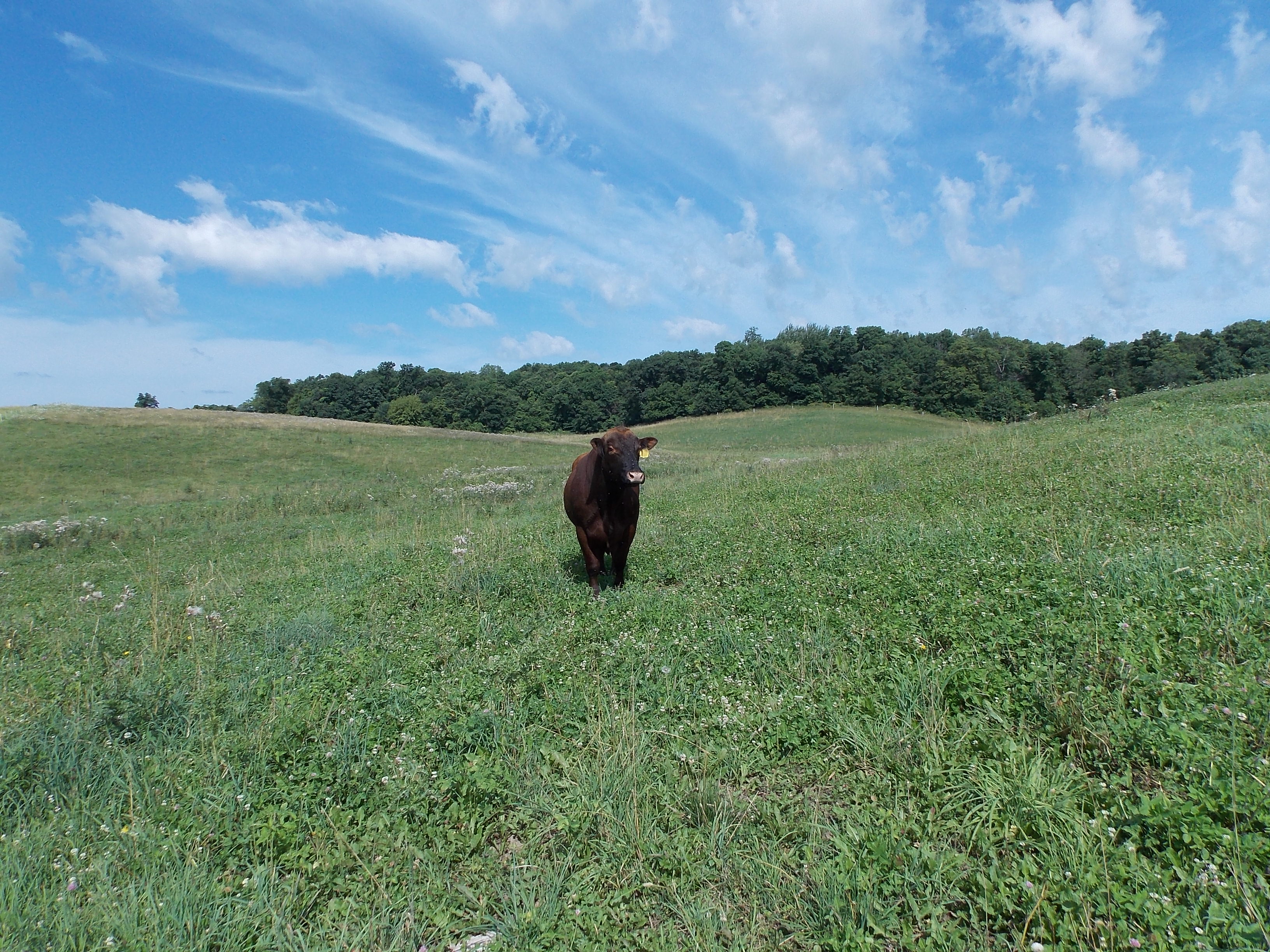
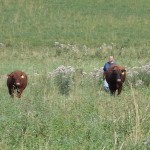
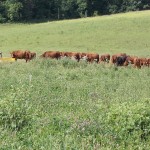
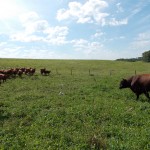
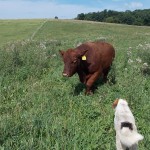
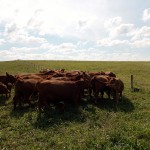
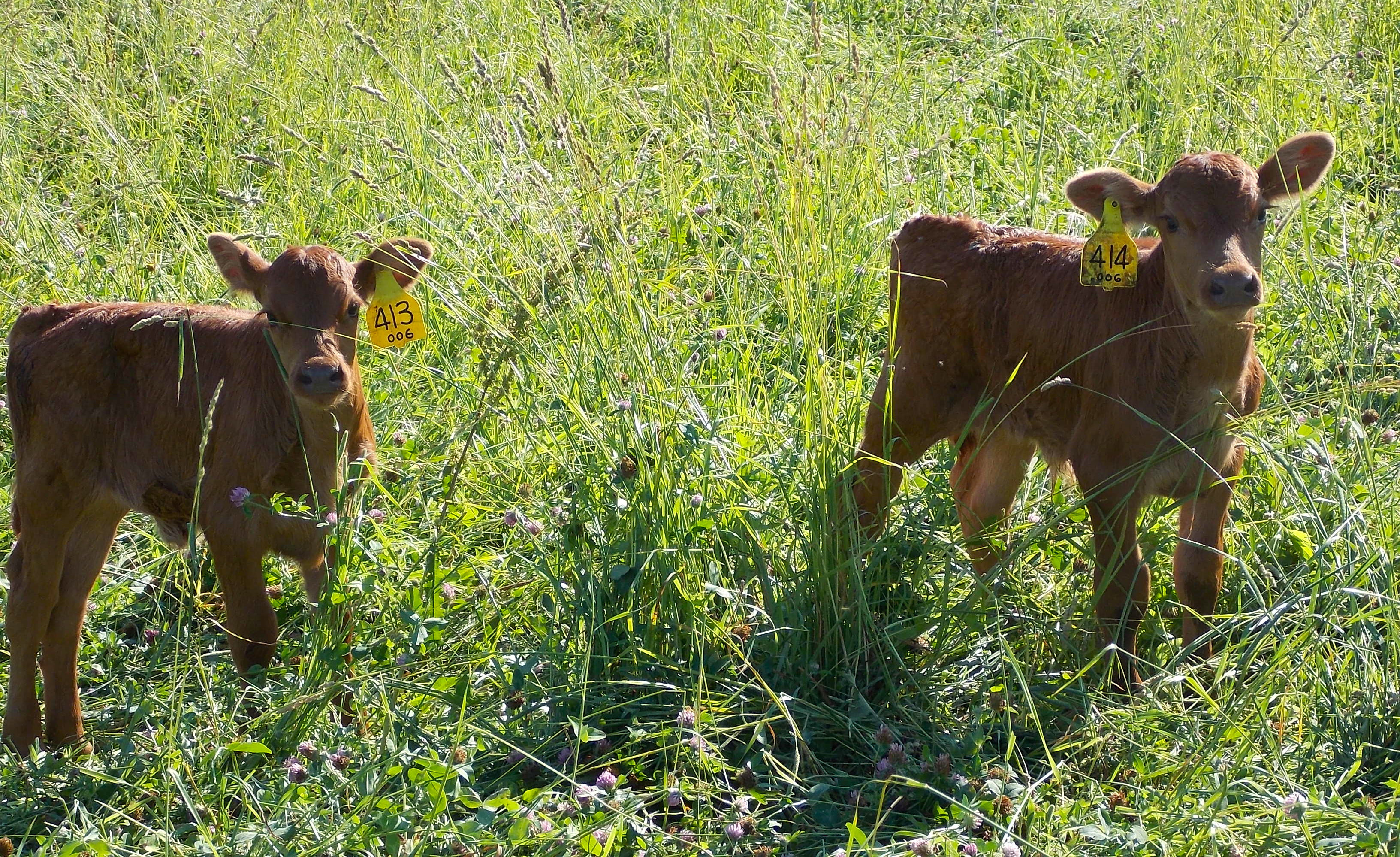
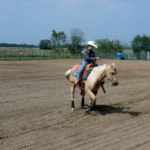
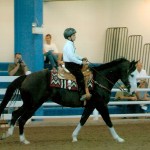
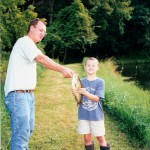
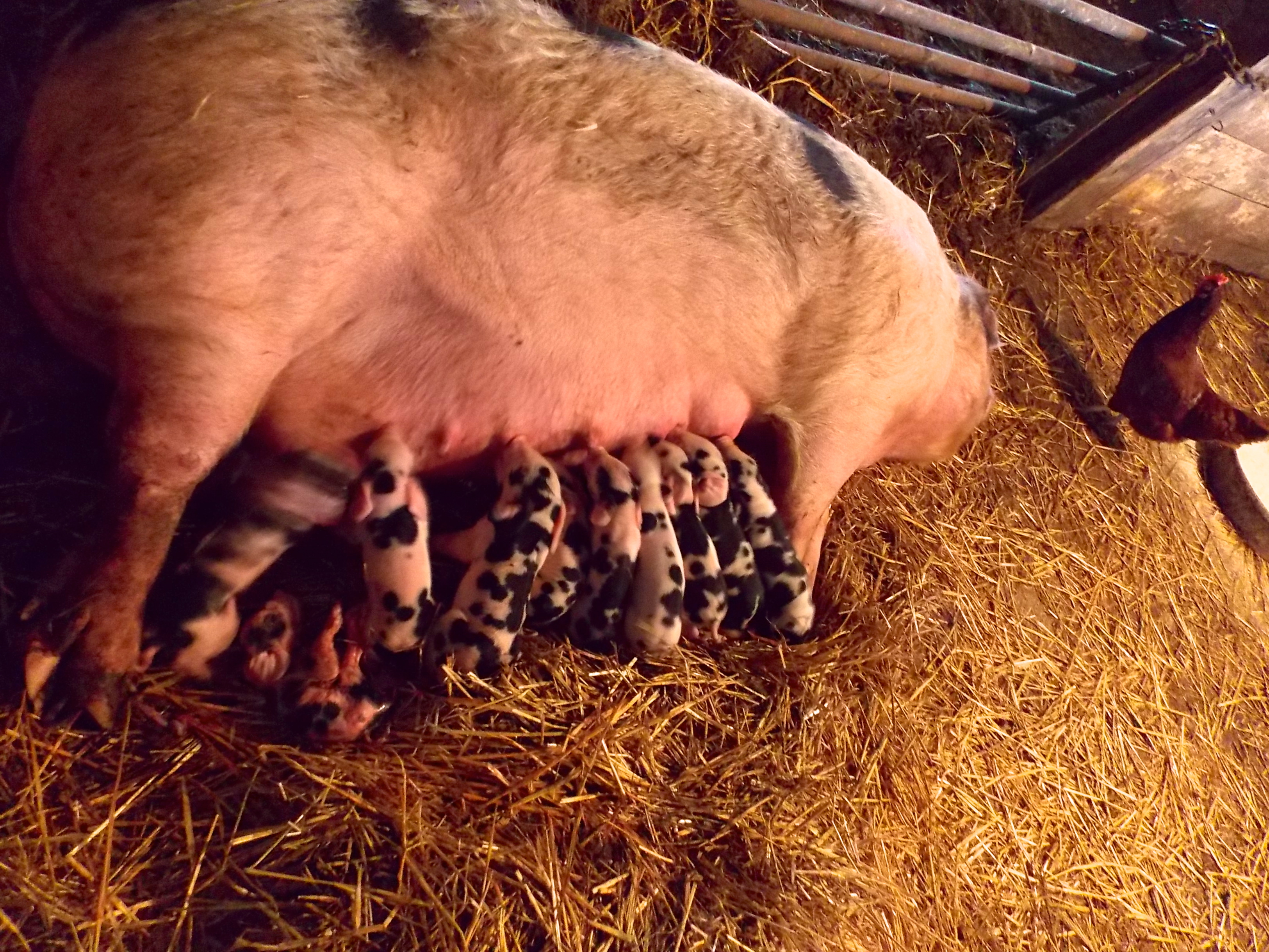
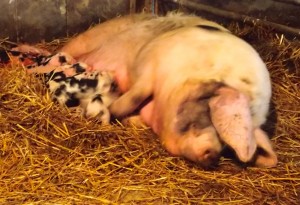
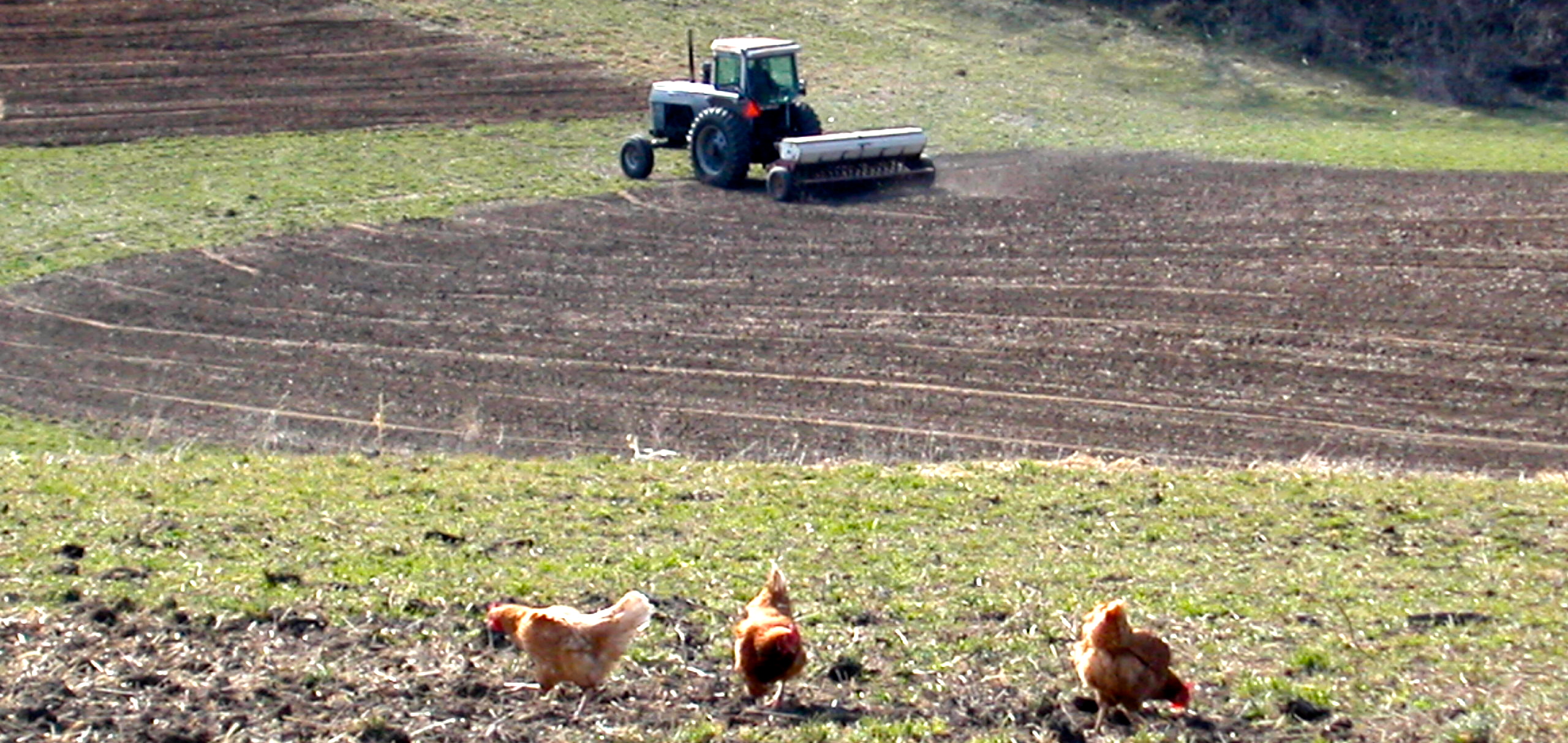
 A few years ago, when we were still living in Illinois, the planting season started as soon as the snow cover was gone, or so it seemed, anyway. The land was flat, it warmed up quickly and dried fast
A few years ago, when we were still living in Illinois, the planting season started as soon as the snow cover was gone, or so it seemed, anyway. The land was flat, it warmed up quickly and dried fast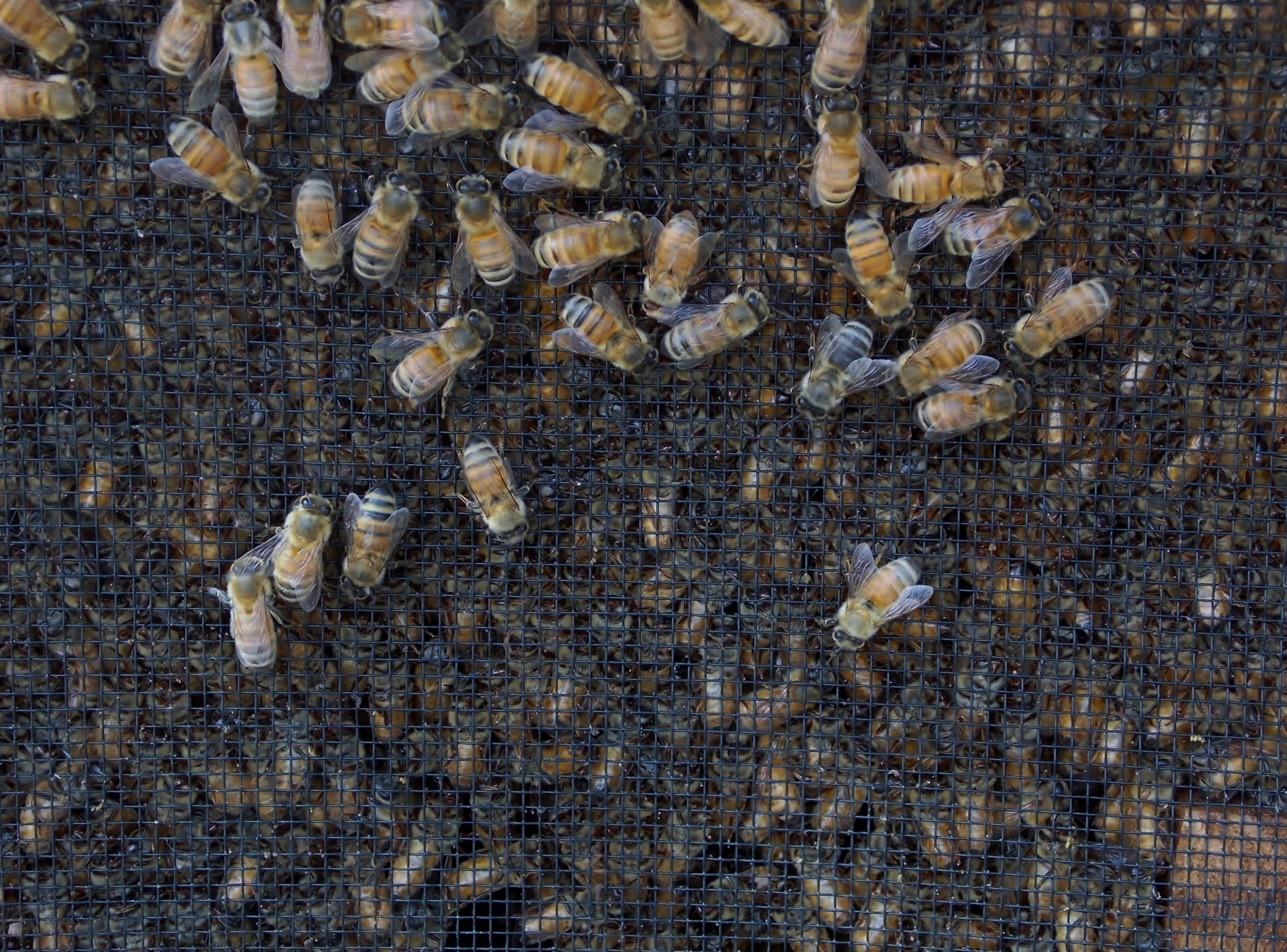
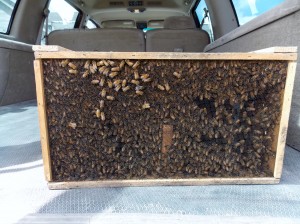 On Sunday night we had snow. Monday's overnight temperature was 20 degrees. It was cold this morning, but I got the call that our bees were ready to be picked up. It seems too cold for bees. I put them in the back of the truck and they were very quiet. A few stragglers were clinging to the outside screen. As the car warmed up, so did the bees. Their buzzing got louder and stronger. I turned up the radio so that I wouldn't hear them. Driving with six-thousand bees in your car
On Sunday night we had snow. Monday's overnight temperature was 20 degrees. It was cold this morning, but I got the call that our bees were ready to be picked up. It seems too cold for bees. I put them in the back of the truck and they were very quiet. A few stragglers were clinging to the outside screen. As the car warmed up, so did the bees. Their buzzing got louder and stronger. I turned up the radio so that I wouldn't hear them. Driving with six-thousand bees in your car 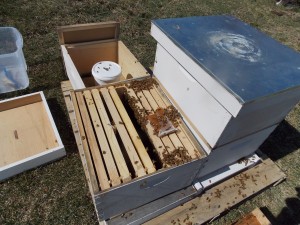
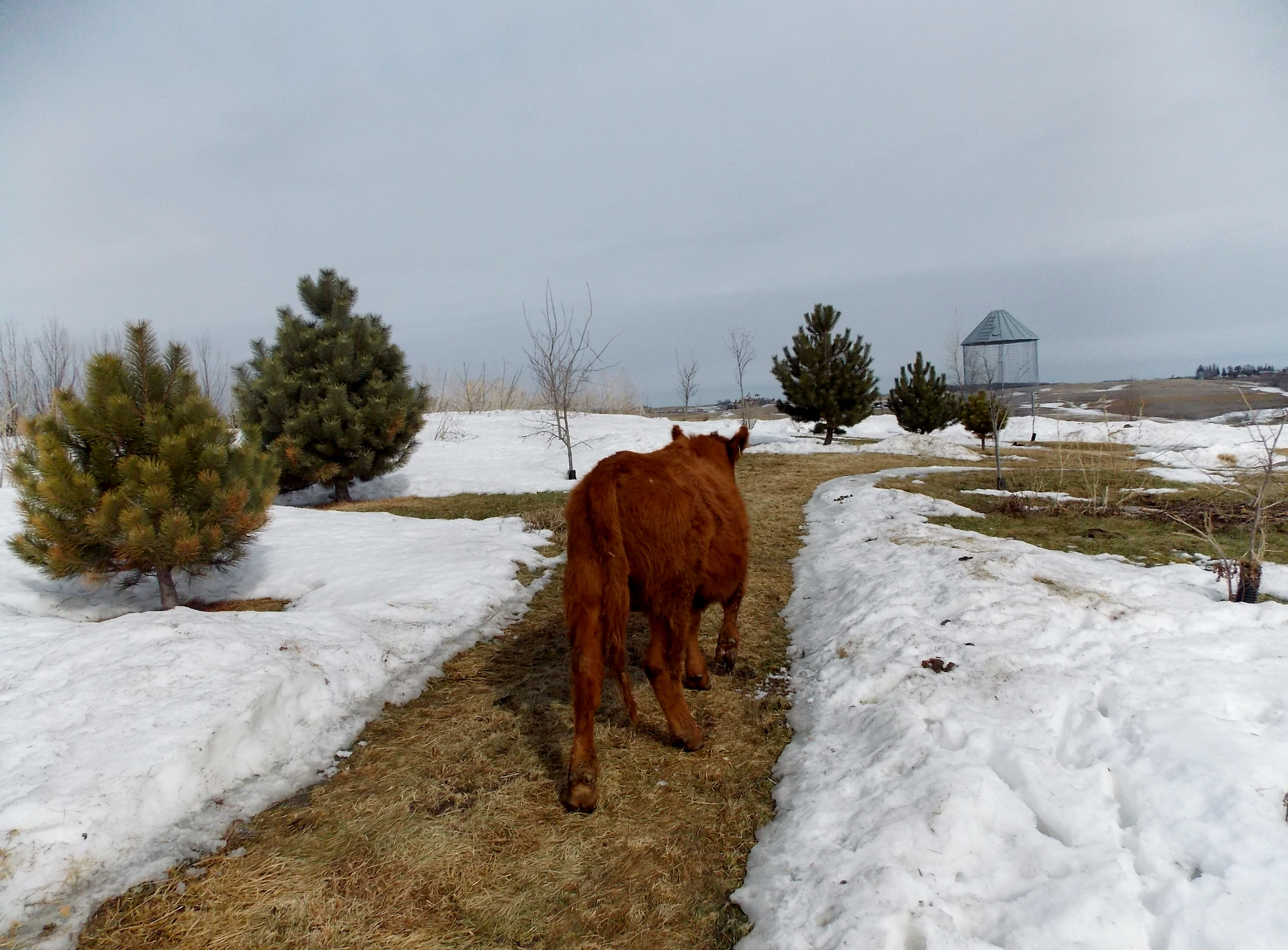
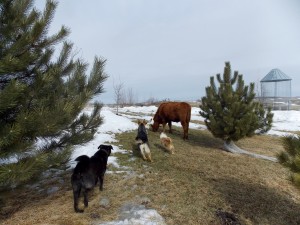 Electric Revenge
Electric Revenge